Related Research Articles

Samizdat was a form of dissident activity across the socialist Eastern Bloc in which individuals reproduced censored and underground makeshift publications, often by hand, and passed the documents from reader to reader. The practice of manual reproduction was widespread, due to the fact that most typewriters and printing devices were inventorized and required permission to access. This grassroots practice to evade official Soviet censorship was fraught with danger, as harsh punishments were meted out to people caught possessing or copying censored materials.

Index on Censorship is an organization campaigning for freedom of expression, which produces a quarterly magazine of the same name from London. It is directed by the non-profit-making Writers and Scholars International, Ltd. (WSI) in association with the UK-registered charity Index on Censorship, which are both chaired by the British television broadcaster, writer and former politician Trevor Phillips. Index is based at 1 Rivington Place in central London.
Yuri Timofeyevich Galanskov was a Russian poet, historian, human rights activist and dissident. For his political activities, such as founding and editing samizdat almanac Phoenix, he was incarcerated in prisons, camps and forced treatment psychiatric hospitals (Psikhushkas). He died in a labor camp.

Alexander "Alik" Ilyich Ginzburg, was a Russian journalist, poet, human rights activist and dissident. Between 1961 and 1969 he was sentenced three times to labor camps. In 1979, Ginzburg was released and expelled to the United States, along with four other political prisoners and their families, as part of a prisoner exchange.
Edward Samoilovich Kuznetsov is a Soviet-born dissident, human rights activist, Prisoner of Zion and writer who settled in Israel in 1979.
Alexander Sergeyevich Esenin-Volpin was a prominent Russian-American poet and mathematician.

A Chronicle of Current Events was one of the longest-running samizdat periodicals of the post-Stalin USSR. The unofficial publication reported violations of civil rights and judicial procedure by the Soviet government and responses to those violations by citizens across the Soviet Union. Appearing first in April 1968, it soon became the main voice of the Soviet human rights movement, inside the country and abroad.
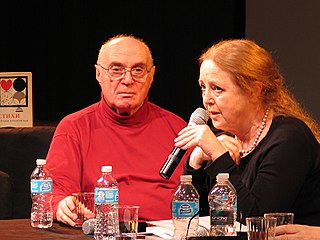
Pavel Mikhailovich Litvinov is a Russian-born U.S. physicist, writer, teacher, human rights activist and former Soviet-era dissident.
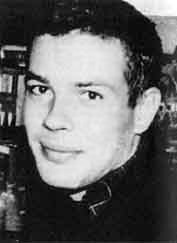
Vadim Nikolaevich Delaunay was a Soviet poet and dissident, who participated in the 1968 Red Square demonstration of protest against military suppression of the Prague Spring.
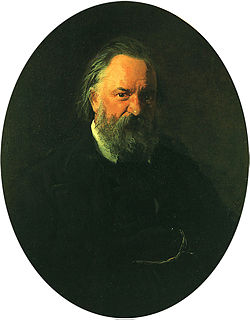
The Alexander Herzen Foundation was a non-profit foundation, legally established in 1969 in Amsterdam, dedicated to publish samizdat manuscripts from dissidents in the former Soviet Union in the original language or in translation. The Alexander Herzen Foundation was the first to publish accounts of the Sinyavsky-Daniel trial and the works of Andrei Amalrik, Yuli Daniel, Larisa Bogoraz, Andrei Sinyavsky, Pavel Litvinov and others in the West. The Foundation was ended legally in 1998.
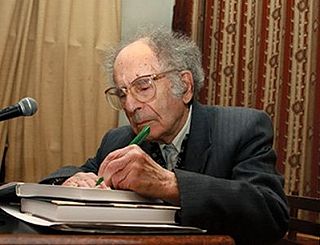
Grigory Solomonovich Pomerants was a Russian philosopher and cultural theorist. He is the author of numerous philosophical works that circulated in samizdat and made an impact on the liberal intelligentsia in the 1960s and 1970s.
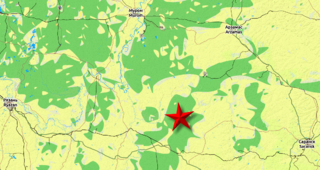
The Dubravny Camp, Special Camp No.3, commonly known as the Dubravlag, was a Gulag labor camp of the Soviet Union located in Yavas, Mordovia from 1948 to 2005.
During the 1950s and 1960s, Mayakovsky Square in Moscow played an important role as a gathering place for unofficial poetry readings, and subsequently for expressing cultural and political dissent in the post-Stalin era.
Alexander Pavlovich Lavut was a mathematician, dissident and a key figure in the civil rights movement in the Soviet Union.
The Initiative or Action Group for the Defense of Human Rights in the USSR was the first civic organization of the Soviet human rights movement. Founded in 1969 by 15 dissidents, the unsanctioned group functioned for over six years as a public platform for Soviet dissidents concerned with violations of human rights in the Soviet Union.
In the 1980s a human rights movement began to emerge in the USSR. Those actively involved did not share a single set of beliefs. Many wanted a variety of civil rights — freedom of expression, of religious belief, of national self-determination. To some it was crucial to provide a truthful record of what was happening in the country, not the heavily censored version provided in official media outlets. Others still were "reform Communists" who thought it possible to change the Soviet system for the better.
Sintaksis was a samizdat poetry journal compiled by writer Alexander Ginzburg in 1959-1960. The periodical included poetry which could not be published officially. It is considered to be the first large-scale samizdat (self-published) periodical of a literary nature.
Anatoly Aleksandrovich Yakobson was a literary critic, teacher, poet and a central figure in the human rights movement in the Soviet Union.
The Trial of the Four, also Galanskov–Ginzburg trial, was the 1968 trial of Yuri Galanskov, Alexander Ginzburg, Alexey Dobrovolsky and Vera Lahkova for their involvement in samizdat publications. The trial took place in Moscow City Court on January 8–12. All four defendants were sentenced to terms in labour camps. The trial played a major part in consolidating the emerging human rights movement in the Soviet Union.
References
- ↑ Koenraad De Wolf; Nancy Forest-Flier (7 February 2013). Dissident for Life: Alexander Ogorodnikov and the Struggle for Religious Freedom in Russia. Wm. B. Eerdmans Publishing. p. 152. ISBN 978-0-8028-6743-8.
- ↑ "The Scene" (PDF). Digital Collections. Retrieved 1 August 2015.